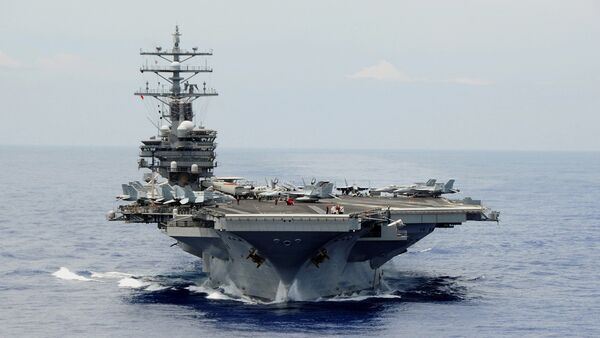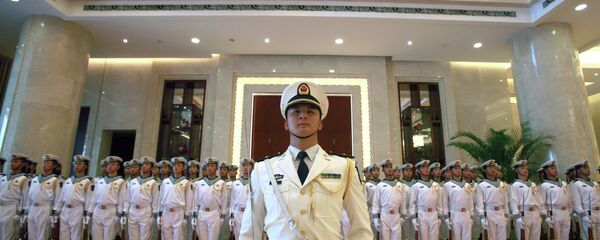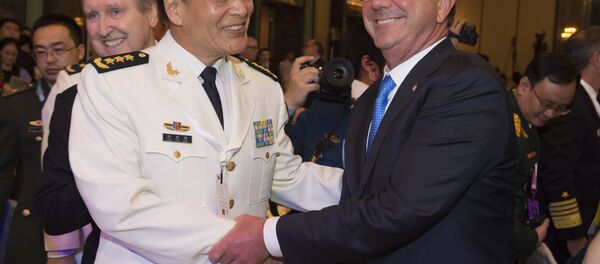Incredible as it may seem, US Defense Secretary Ashton Carter is now holding the olive branch to Beijing, insisting that Washington is committed to working with China despite tensions simmering between the countries.
"While we have disagreements with China, especially over its destabilizing behavior in the South China Sea, we are committed to working with them and to persuade them to avoid self-isolation," Ashton Carter stated in his speech delivered at the Center for a New American Security's conference in Washington on June 20.
Commenting on Carter's statement, Dave Majumdar, the Defense Editor of The National Interest, notes that while creating its security network in the Asia-Pacific, Washington is signaling that it is by no means trying to exclude Beijing.
"In fact, the United States wants China to join the American-led liberal-institutional world order as Beijing emerges as a global power," Majumdar underscores.
Meanwhile, China is expected to take part in the Rim of the Pacific (RIMPAC) exercises in Hawaii — the world's largest maritime exercise held by the US Navy — that will bring together almost 27 nations.
On Monday Chief of Naval Operations Admiral John Richardson confirmed that China's invitation to RIMPAC is still open.
"The invitation is still there for the Chinese to participate in RIMPAC and these are the sorts of things that sort of bring us all together in positive, constructive ways," Admiral Richardson told journalists on June 21, as quoted by Military.com.
Richardson added that he was looking forward to meeting his Chinese counterpart, commander of the People's Liberation Army Navy Wu Shengli, in person.
"These personal relationships are extremely important, particularly if something should happen and we need to talk to each other on short notice, de-escalation… we keep things on an even keel," the Admiral emphasized.
Does it mean a shift from sticks to carrots?
Indeed, some experts began speculating about the apparent shift after the 15th Shangri-la Dialogue defense summit in Singapore on June 3-5, pointing to an unusually "mild" attitude to Beijing demonstrated by Ashton Carter.
On June 16 in his opinion piece published by The Diplomat, former Assistant US Army Attache in Beijing Ben Lowsen called China "an emerging great power," "a great civilization" and insisted that both Washington and Beijing should "make an effort to understand and accommodate the customs of the other while maintaining their own traditions" to evade bitter misunderstanding.
"Essentially, Washington is holding out the olive branch in the hopes that China will accept the current order without challenging American dominance," Majumdar notes.
"But if it doesn't, Beijing will find itself facing off against Carter's Asia-Pacific security network," he warns, adding that Washington is going to maintain its hegemony in the region.





